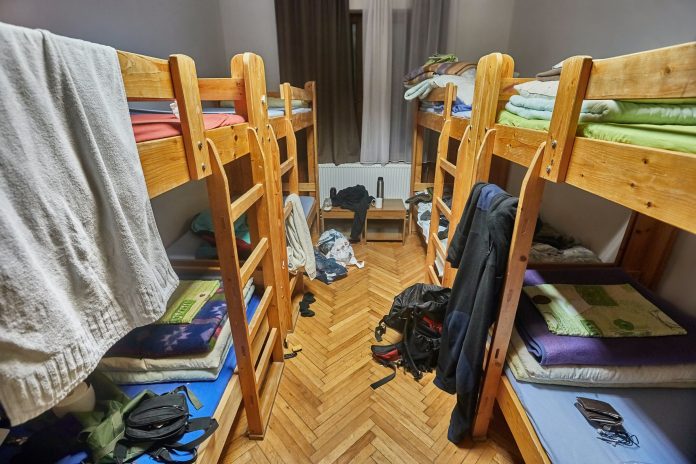Engineer Amanda Nogueira was one of 30 Brazilians studying English in Ireland who spent two months sleeping in the basement bar of a Dublin nightclub before being moved by her Brazilian landlord to a mouldy two-bedroom flat she shares with 10 other students. With only 1,400 flat shares to rent in the whole of Ireland, according to a report in the Irish Examiner, the housing situation is likely to get worse, especially in September when a new cohort of international students is due to arrive.
Amanda, who works as a hotel cleaner to help cover the €450 a month she pays to share a bunk bed in a room holding five other students, told national broadcaster RTÉ News, “I’m from Brazil. It’s a third-world county. So I never expected to meet this here. I never expected to be exploited in this way.”
ICOS, the Irish Council for International students, which co-operated with the broadcaster’s investigation, has been helping students like Amanda make official complaints about their landlords, many of whom, like Amanda’s, have been operating illegally.
ICOS executive director Laura Harmon has called on the government to update legislation on overcrowding which is no longer fit for purpose. Harmon believes that the country’s accommodation crisis “…is also having an impact on Ireland’s reputation abroad as a study destination. This could have serious ramifications for the Irish education sector as a whole,” she warned.
Although students from the EU, particularly the junior market, still make up the majority of enrolment in Ireland’s language schools, the long-haul, long-stay market, mostly from Latin America and East Asia, has been growing steadily. In 2019, the year before the pandemic, Irish language schools enrolled over 15,000 Brazilians, making it the second top destination for this nationality, topped only by Canada.
Links between the tiny EU country and the Latin American giant are strong. One in three of the population of the small town of Gort near Galway are Brazilian. Brazilian nationals do not require a visa to enter the country to study, and are attracted by the growing choice of language schools and work rights for long-stay language students. Young adults from that country make up the biggest contingent of Latin Americans, which also include Mexicans, Chileans and Venezuelans heading to the Republic every year.
The numbers mean that some sectors of the Irish economy have become quite dependent on them. Calling for an extension to student Stamp 2 visas, which allows language students to study and work in the Republic for up to two years, Adrian Cummins, of the Restaurant Association of Ireland, warned that removing thousands of workers just as the peak season began would present severe problems for the sector.
“What we’d like to see is the government extend the visas for another six months,” he said in May, the month in which most student visas lapse. “This will affect businesses and people across the country.”
Fiachra O’Luain, founder of the English Language Students Union, also made a direct plea for visa extensions to Justice Minister Helen McEntee. “Ireland cannot afford to lose the critical labour capacity during the high season… when these students are allowed to work full time,” he said, pointing out that many use the money to fund their future studies in the country.
Teachers also needed
It’s not only accommodation which is in short supply in Ireland – it’s also teachers. Over half of the 11 employers in Ireland currently advertising on one job site for staff to start immediately are actively looking to recruit from the UK, with their adverts all making clear that “UK nationals do not need a visa or residency permit to live or work in Ireland”.
But with shared rented accommodation hard to find (see above) how will teachers coming from the UK, or from EU member states, find a place to stay?
Four employers are running the kind of residential summer schools familiar in Britain, but fairly new in the Republic. Accommodation is, of course, included, though rates of pay seem less generous than non-residential jobs. One employer is advertising the exact same terms and conditions in Ireland as those in its UK centres, which is odd, given that Irish labour laws are very different.
Two of the non-residential Irish schools actively recruiting from the UK are offering help with accommodation. Both are also offering the possibility of permanent full-time jobs after the summer – an prospect rarely seen in the UK.
A word of warning though: the Irish are much stricter than the British Council when it comes to teacher qualifications. A first degree is a must, while Celta, Trinity and Ireland’s Celta course are the only certificates they accept.







